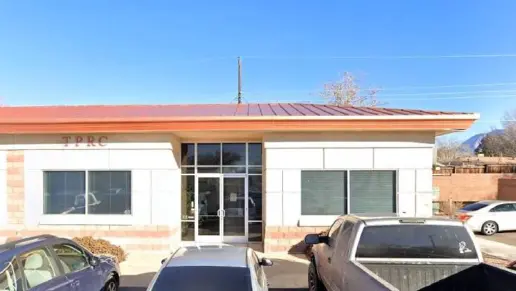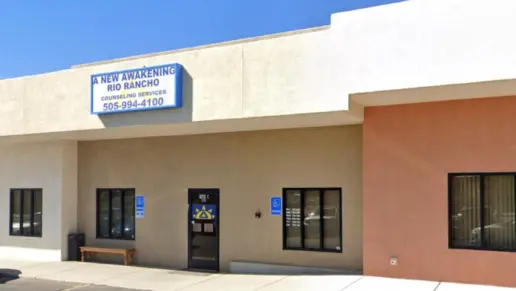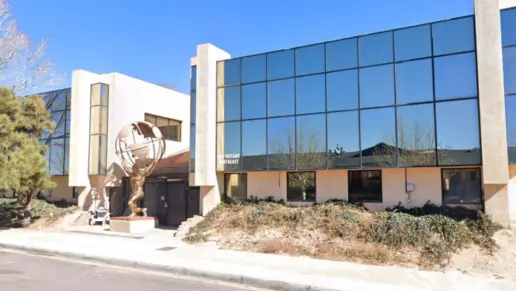About Golden Services Villa de Esperanza
Golden Services Villa de Esperanza is an accredited comprehensive mental health and substance use disorder treatment center. They offer residential and outpatient treatment for adults 18 and over and they offer a special residential treatment program for mothers with children in kindergarten or younger. The center accepts commercial insurance, state funding for the uninsured and Medicaid for several of the programs.
In detox, medical professionals oversee your withdrawal from alcohol or drugs. You’ll have a peer worker to guide you as you go through the process and you’ll have the option of attending daily peer groups. You’ll be given medications if appropriate to ease any uncomfortable withdrawal symptoms.
In the residential program you’ll work closely with your care team to develop a recovery plan with your goals and needs in mind. You’ll attend group and individual counseling where you and your therapist can identify any co-occurring disorders such as anxiety or depression. Many people with addiction challenges have underlying mental health concerns. Once identified, you can better manage your mental and physical health. The inpatient program also offers recreational amenities and activities such as workout equipment, arts and crafts and walking along the Pecos River.
If you need further help after discharge from the inpatient program or if you need an intensive program but can’t do an inpatient program then there’s also an intensive outpatient program (IOP). The IOP meets Monday, Tuesday and Friday from 5:30 p.m. to 8:30 p.m. You’ll live at home or in a sober living house while attending the program.
The IOP provides you with the tools and skills necessary to maintain a healthier lifestyle. You’ll also address your underlying mental health issues that make sober living more challenging. The IOP requires nine hours per week of therapy, both individual and group. The typical length of the program is 16 weeks.
Sometimes people need a little support but don’t need an intense inpatient or outpatient program. If that’s the case, the center offers weekly options for group and individual therapy. Some of the group therapy options include anger management, grief and substance use. All of the groups teach valuable skills to enhance self control, build better coping strategies and build supportive connections and relationships.
Other Forms of Payment
Self-pay involves paying for treatment out of your own pocket. You can use savings or credit, get a personal loan, or receive help from family and friends to fund your treatment. If you don't have insurance or your insurance plan doesn't cover a specific program, self-pay can help ensure you still get the care you need.
Financial aid can take many forms. Centers may have grants or scholarships available to clients who meet eligibility requirements. Programs that receive SAMHSA grants may have financial aid available for those who need treatment as well. Grants and scholarships can help you pai for treatment without having to repay.
Addiction Treatments
Levels of Care
Treatments
Substance rehabs focus on helping individuals recover from substance abuse, including alcohol and drug addiction (both illegal and prescription drugs). They often include the opportunity to engage in both individual as well as group therapy.
Programs


Clinical Services
Cognitive Behavioral Therapy (CBT) is a therapy modality that focuses on the relationship between one's thoughts, feelings, and behaviors. It is used to establish and allow for healthy responses to thoughts and feelings (instead of unhealthy responses, like using drugs or alcohol). CBT has been proven effective for recovering addicts of all kinds, and is used to strengthen a patient's own self-awareness and ability to self-regulate. CBT allows individuals to monitor their own emotional state, become more adept at communicating with others, and manage stress without needing to engage in substance abuse.
Weekly dialectical behavior therapy (DBT) sessions involve one on one meetings with your therapist. Each session lasts about an hour. You'll work on identifying and accepting your emotions while also learning how to manage them. Additionally, weekly 90 minute group DBT sessions give you the opportunity to develop and practice coping skills.
Group therapy sessions in New Mexico are structured and led by professional therapists with experience in leading groups. This ensures that the group discussions are focused and productive and that therapeutic goals are consistently addressed during each session.
Individual therapy offers men and women a customized approach to explore the root causes of their substance use and develop healthy coping mechanisms. This improves the effectiveness of treatment and helps to foster long term sobriety. Sessions usually involve an in depth exploration of your life experiences, including harmful behaviors and thoughts that drive addictive behavior.
Motivational Interviewing (MI) is a clinical approach to helping people with substance abuse issues and other conditions shift behavior in positive ways. It is more goal-oriented than traditional psychotherapy, as MI counselors directly attempt to get clients to consider making behavioral change (rather than wait for them to come to conclusions themselves). Its primary purpose is to resolve ambivalence and help clients become able to make healthy choices freely.
Trauma therapy addresses traumatic incidents from a client's past that are likely affecting their present-day experience. Trauma is often one of the primary triggers and potential causes of addiction, and can stem from child sexual abuse, domestic violence, having a parent with a mental illness, losing one or both parents at a young age, teenage or adult sexual assault, or any number of other factors. The purpose of trauma therapy is to allow a patient to process trauma and move through and past it, with the help of trained and compassionate mental health professionals.
If you attend couples therapy in New Mexico, you can expect to work with the therapist and each other to identify emotions, explore your history, and learn new skills to help you better meet relationship challenges. These skills may include problem solving, conflict resolution, and anger management.
Therapists in New Mexico focus on creating a supportive network in family therapy sessions. This helps to support their loved one's recovery journey. By identifying dysfunctional patterns, your therapist can help you develop healthier ways of interacting with each other that significantly improve the overall treatment outcome.
Amenities
-
Residential Setting
-
Private Rooms
Contact Information
102 Oglethorpe Professional Court
Suite 6
Savannah, GA 31406


